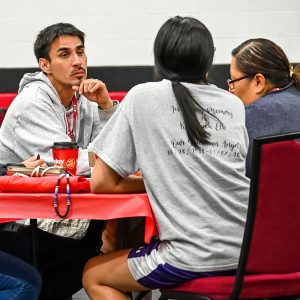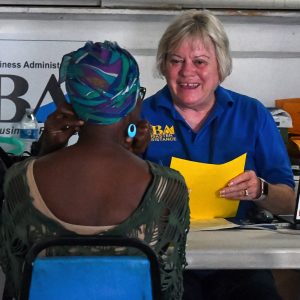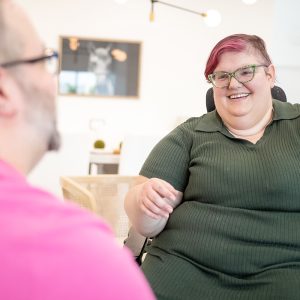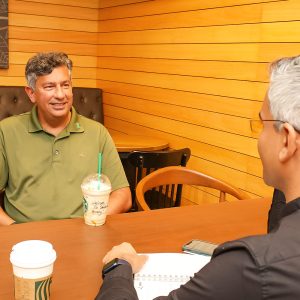RCLD Outreach Training
Section 4: Keep going
Evaluating project outcomes
A note on inclusion and accessibility
Reflect on cultural self-awareness
A strong evaluation uses a culturally competent framework. To do this, you can reflect on your cultural self-awareness through reflection on your background and lived experiences related to rural communities and disability. Our personal histories influence the biases we bring to the table or the assumptions we might make about others. Everyone has their own history and biases. Self-awareness is a good way to avoid the pitfalls of prejudice and discrimination that come from assuming other people think the same way you do or share your values.


Community involvement
Evaluation that involves the community helps to ensure that the project is relevant and appropriate. When considering evaluation activities and topics, it is helpful to reflect on the information you gathered when you were getting to know your rural community during the rural outreach and networking session. Knowing the community and culture means knowing the meaning behind certain things or places.
Example
For example, one CIL staff found she needed to reframe her Healthy Community Living Workshops as classes because of the negative meaning of workshop (as in sheltered) for many people with disabilities. If you are putting together a survey or interview questions, consider testing out your materials and language first with a trusted community member. Get feedback and be open to that feedback!


Feedback to address needs
It is also important to build/create spaces that are safe for feedback via multiple formats. This is something you are already probably pretty good at! However, accessibility can be applied beyond disability accessibility. Ask people what is best for them and make a legitimate effort to address those needs. You may want to check in on:
- Language
- Distance
- Technology
- Timing and scheduling
Framing an evaluation
How an evaluation is framed also matters. Individuals may be intimidated by a survey or a written assessment. You can address some of this by asking folks up front:
- What is the best way for them to communicate information to you?
- How do they want to engage in the evaluation?
Framing an evaluation more like a conversation may make things more comfortable.

